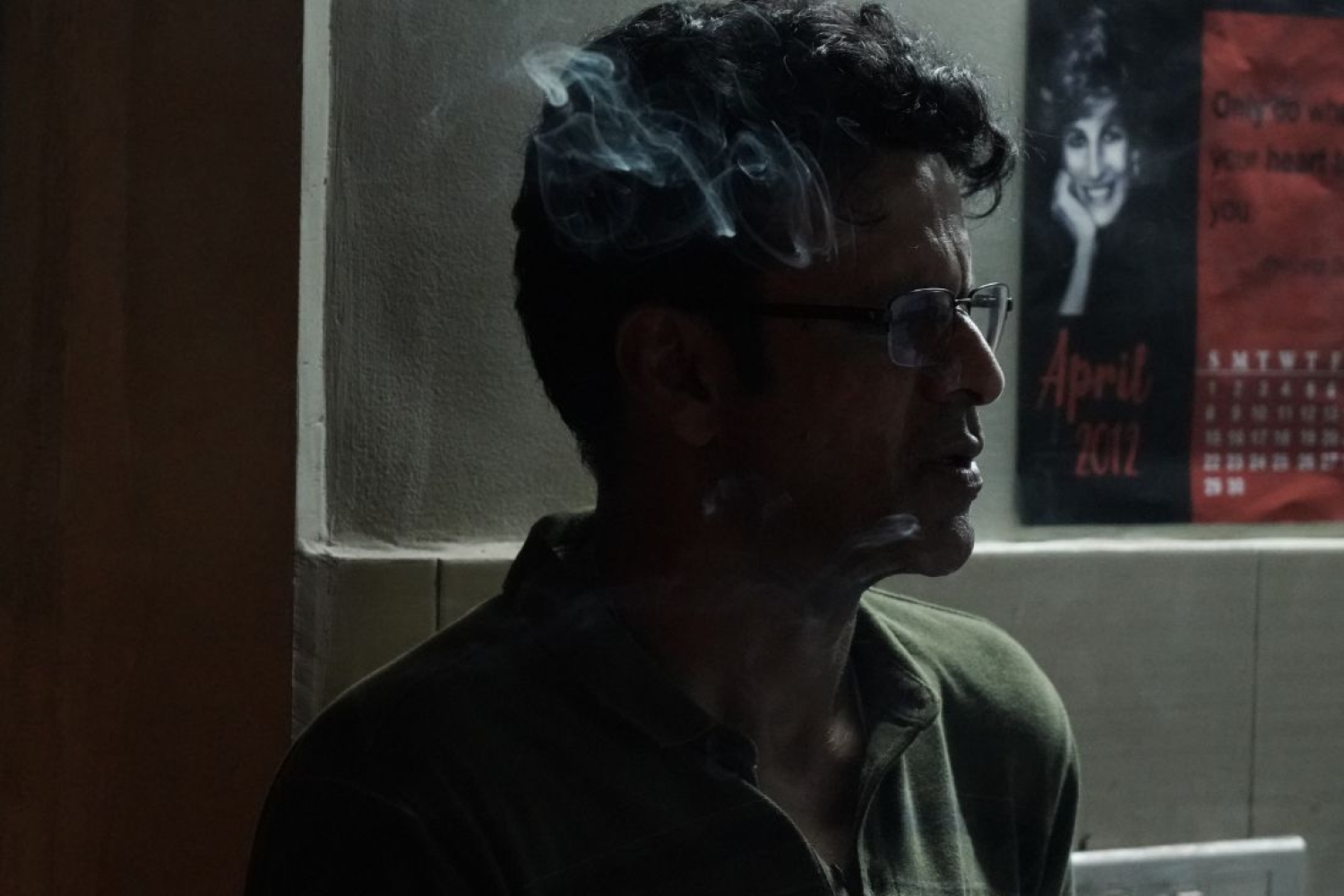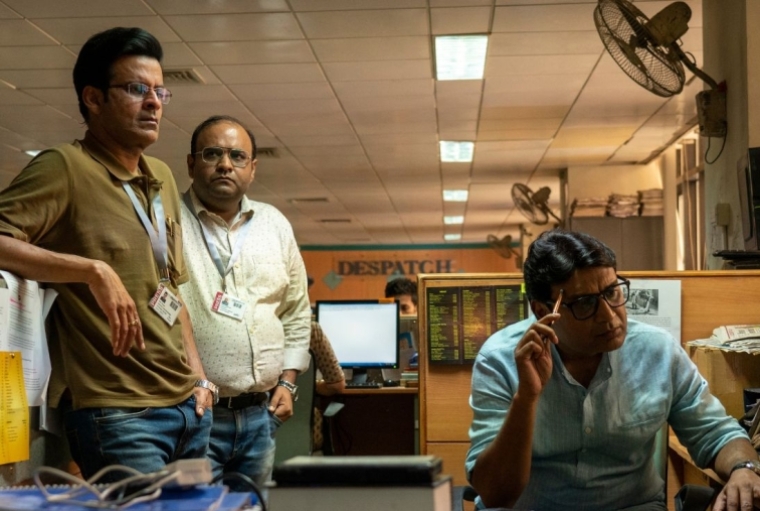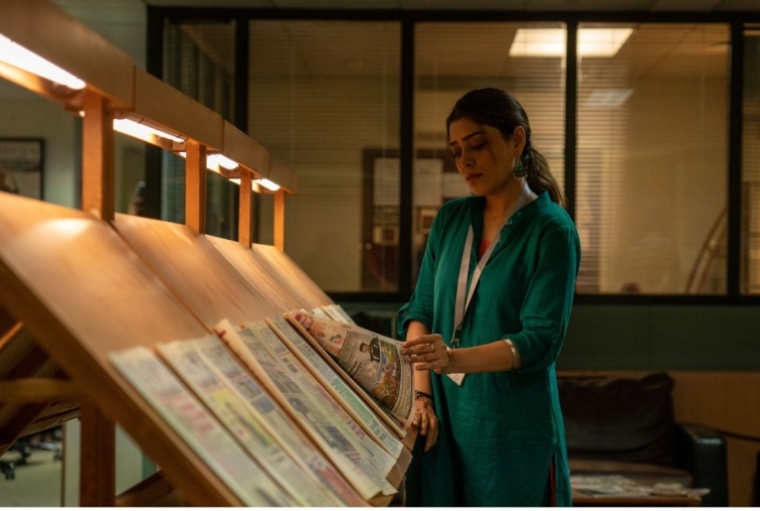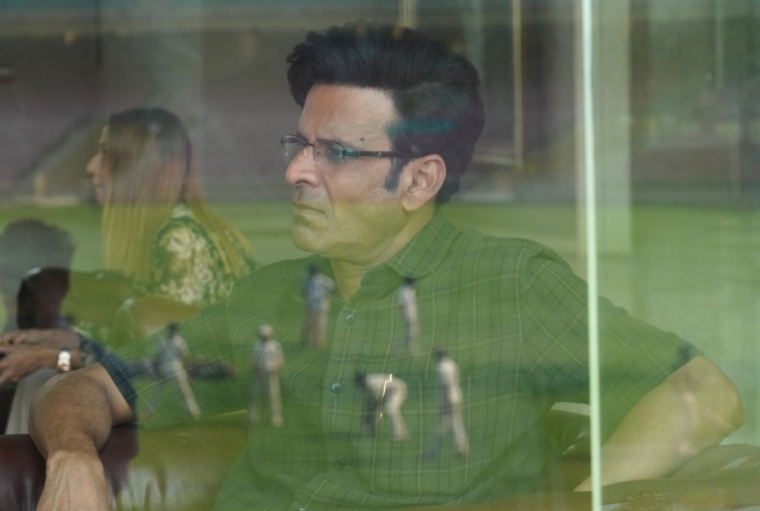

Kanu Behl is one of our favourite and most sought-after filmmakers from the younger generation. This fresh group of directors brings new sensibilities that challenge conventional storytelling and introduce experimental perspectives. What intrigues us about Kanu is his deep understanding of the male characters in his films and the complex relationships they have with the women around them. Additionally, themes of power and money often drive his narratives.
Coming from the same space, Kanu’s new film, Despatch is the story of a naïve journalist who becomes entangled in a complex nexus of a political-criminal scam that disrupts his life. This is Kanu’s third fictional narrative, following his previous work, Agra, which received a five-minute standing ovation at the Cannes Film Festival. We asked him to elaborate on some subjects that have intrigued us about his storytelling.
Coming from the same space, Kanu’s new film, Despatch is the story of a naïve journalist who becomes entangled in a complex nexus of a political-criminal scam that disrupts his life. This is Kanu’s third fictional narrative, following his previous work, Agra, which received a five-minute standing ovation at the Cannes Film Festival. We asked him to elaborate on some subjects that have intrigued us about his storytelling.
In your interview with Hollywood Reporter, you said you’re curious as to why ‘films about journalism often portray journalistic characters as idealistic figures carrying a torch to break stories without exploring them as flawed human beings.’ We can’t agree more since Bollywood and our nation are obsessed with the ‘good/clean character’ roles. Why do you think that exists?
I think cinema or for that matter any other art form are mistakenly expected to reassure audiences or give them solace or contribute to their idea that the world we live in makes sense. Because most of us are fighting chaos and trying to build some sort of structure in our lives. Clearly defined good/bad characters help us feel calmer about the lives we lead. It is almost akin to being an ostrich stuck with its head in the sand.

Can you talk a little about Shahana’s small but significant role? How did you convince her to do it?
Shahana's part in the film is one of the most crucial elements that make up Joy Bag's life. He is a man who does not listen to people around him and has a fixed idea of how his life should be, the latest iteration of which is shunning his marriage and reestablishing a new doll house with his muse and mistress. This collides with his wife Shweta's inherent insecurities about her own self-worth beyond the world of her marriage. The journey for her through the film is one of maturity. Almost like a flowering and finding of the self.
Shahana and I had wanted to work together for a while. And the only one conversation we had was the apparent length of the part. But once we read the script together and spoke about how significant the part was, and its own importance outside the reference of the protagonist, Shahana was on and was gracious enough to give her all to the part.
What kind of research went into this film? And how long was the process?
What kind of research went into this film? And how long was the process?
The original idea for the film was born somewhere around 2016. And then it took me and Ishani Banerjee, my co writer, about 18 months of on ground research where we tried to understand the world we were about to paint, in depth. This meant meeting a lot of journalists, lawyers, cops and even some underworld figures who all gave us an in through their own points of views. The more we dove in, the more we realized that the world we live in today is becoming more and more opaque and the chances of finding one consolidated 'truth' out next to zero. This insight, coupled with our desire to do a faustian piece about a flawed crime journalist became the cornerstones of the screenplay.

The dynamic the protagonist shares with three women around is an important story thread. Can you dwell on that a bit and where it finds its roots? It has always been fascinating to see how women have a strong yet subtle power over the men in your movies.
Since we were not just looking at Joy Bag as a cardboard cutout 'crime journalist', the world of the film expanded as we tried to scratch more and more of his personal life. And this reflected in our desire to know who he was at his secret centre, when he was alone. This led us to explore his sexual life and his relationship to the three key women characters. We were also asking ourselves what a middle aged man like him was doing with a much younger woman as his mistress.
And the idea for the mental 'dollhouse' emerged. Joy does not have time to truly connect with anything or anyone. He has his own view of the personal life which he wants to create with or without the women in it. Without him realizing then, they begin to have immense power over him. At the end of the day, all human beings are engaged in power transactions with each other anyway.
Manoj Bajpayee is probably the biggest star you’ve worked with to date. Not taking away from the incredible performances your cast has given in your past films. Why did you think Manoj was fitting for the role?
Manoj Bajpayee is probably the biggest star you’ve worked with to date. Not taking away from the incredible performances your cast has given in your past films. Why did you think Manoj was fitting for the role?
It was very instinctive. The moment we had finished writing the script, we started discussing names for Joy in the writing room. And almost at the same time, both me and Ishani said Manoj fits perfectly. He fits the distance and yet the emotional immersion that Joy Bag feels on an everyday level almost perfectly. That, coupled with his acting nous and sheer brilliance and dedication to his craft even after 30 years of such a stellar biography made the decision a no brainer.

You’re infamous for taking as many takes as it takes to get the perfect shot. Then you’re not an actor’s director, is it?
If giving the actor enough time to work through the moment on the day of the shoot, and truly search for what the here and now of the shot is, equals not being a director's actor then I plead guilty. The only purpose on the morning of a shoot day is to be able to create enough space for the actors to be able to take their time and investigate what their character is going through. I think it's a boon for them if they have a director who can give them that unlimited space. This however cannot be an immovable rule. I've worked with several actors whose first two takes are their best, and that evolves itself into a different working equation.
If giving the actor enough time to work through the moment on the day of the shoot, and truly search for what the here and now of the shot is, equals not being a director's actor then I plead guilty. The only purpose on the morning of a shoot day is to be able to create enough space for the actors to be able to take their time and investigate what their character is going through. I think it's a boon for them if they have a director who can give them that unlimited space. This however cannot be an immovable rule. I've worked with several actors whose first two takes are their best, and that evolves itself into a different working equation.
What will you be working on next?
I'm currently developing a bizarre, spiritual horror story and a sci-fi stoner comedy.
Words Hansika Lohani
Date 12.11.2024
Words Hansika Lohani
Date 12.11.2024